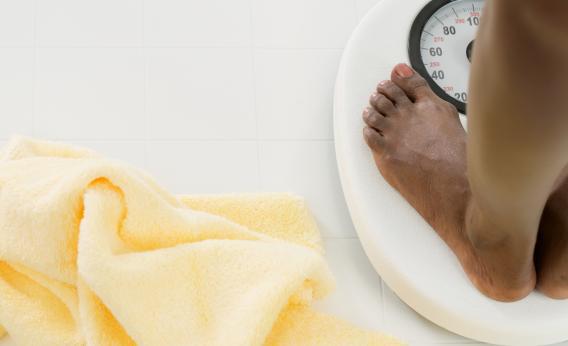We’ve been hearing for some time that black women are happier with their bodies than their white counterparts, that in something vaguely defined as “black culture,” heavier, curvier female figures are praised and desired in contrast to the thin-at-all-costs fascism of the “mainstream.” In a lengthy piece published yesterday by the Washington Post, reporter Lonnae O’Neal Parker uses the results of a survey of African-American women conducted by the Post and the Kaiser Family Institute to go further, offering an explanation for the lack of self-loathing that’s, well, perplexing.
Parker writes that “although black women are heavier than their white counterparts, they report having appreciably higher levels of self-esteem.” In the survey, 41 percent of average-weight Caucasian women reported having high self-esteem, while 66 percent of medically obese black women felt the same. Now, it is surely a good thing to be at peace with one’s body, and the idea that thin should be in—or even necessary for good health—for all people is obviously preposterous. On the level of fighting unproductive fat shaming (in any group), I’m totally with Parker; but I lose her in her theorizing that black women may be more mentally healthy because of some kind of cultural force field. Here’s the thesis:
The notion that all women must be culled into a single little-bitty aesthetic is just one more tyranny, they say. And black women have tools for resisting tyranny, especially from a mainstream culture that has historically presented them negatively, or not at all.
Freed from that high-powered media gaze, generations of black women have fashioned their own definitions of beauty with major assists from literature and music — and help from their friends.
Parker goes on to develop what turns out to be a kind of evolutionary argument, as if black women were somehow caught on the other side of the cultural mountain and, once there, free to construct their self-image in isolation. It’s an attractive notion in that it relies on the idea that a wider racist culture’s indifference could be exploited by black women in order to invent an autonomous set of aesthetics, unseen.
There’s one problem though: black women haven’t been ignored by white tastemakers. If anything, their bodies have long been the subject of intense scrutiny and fetishistic categorization. No culture exists truly separate from the influences of those around it, and black women are no different. A cultural anthropologist far more astute than I am would likely be able to show how notions of beauty in this case diverged in reaction to one another, so I’ll leave that to them. But I will point out a few of the problems with Parker’s evidence.
One of her sources, a professor of African American studies, argues that black women care more about “style, grooming, how you present and carry yourself” than weight, concluding that “we have a much broader and deeper conception of beauty” than other people. Last time I checked, non-black women (not to mention men) were just as interested in their hair, clothes and self-presentation as anyone else. Parker also takes the linguistic route, noting that terms like “thick” and “big-boned” are used in the African-American community to signal appreciation for larger women, but these could just as easily be interpreted as kind-hearted euphemisms (“husky” comes to mind in comparison). And while I’m in no way suggesting that we should look to men as the only source of bodily validation, for a piece that’s so much about desire and standards of beauty, it seems strange that no male (or for that matter, lesbian) voice enters the discussion.
Then there’s the dubious study Parker cites by an exercise physiologist who compared the moods of white and black women after looking at photographs of a white model. While white women reported feeling dissatisfied with themselves in comparison to the ideal, black women were remarkably unscathed. Of course, the study might have actually meant something if the subjects had been asked to compare themselves to black models as well; in any case, the unreliability of this kind of self-reporting renders it of little worth.
To be clear: Parker’s piece is a fascinating meditation on differences in cultural aesthetics, and her implicit advocacy for more elastic notions of beauty is laudable. But presenting black women as a heroic special case is self-defeating. Women of all races have found ways to combat body “tyranny,” and in this battle we need alliances, not factions.
